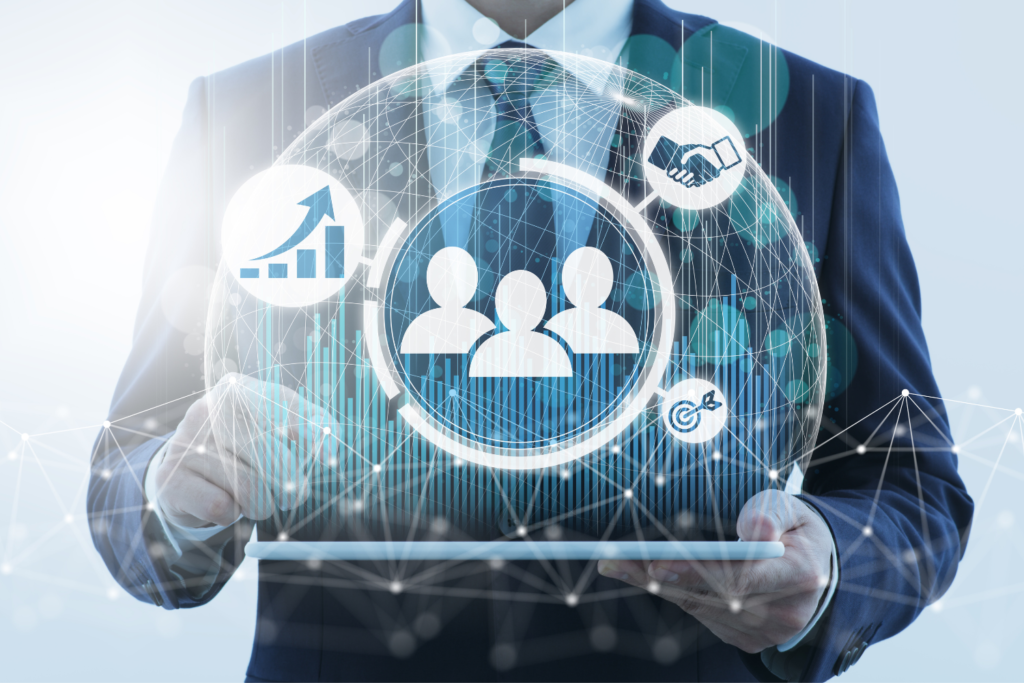MENU

ERP, CRM, WMS, e-commerce and accounting software are all software that allow the automation of fundamental business processes. When a company is growing, process automation becomes a necessity. But each of these software solutions addresses different business needs.
How do you know which of these software solutions will benefit your business?
It’s a process that requires a good understanding of your needs. By analyzing them, you will be able to make a more informed choice. However, it is not always easy to determine the technological needs of a company. You can do business with a technological transformation consultant.
He will help you analyze your needs. Once this analysis is complete, he or she will help you select an appropriate software solution. Don’t forget that there is government financial assistance for access to a digital transformation consulting service! The ESSOR program is another grant that helps you finance the implementation of software, such as an ERP for example.
In the meantime, find out more about the different features of this software. Read on to learn more.
A CRM (customer relationship management), as its name suggests, is a software that allows the management of customer relationships. The CRM serves as a database for everything that concerns customers. It collects information such as:
In the CRM you create customer profiles and users have access to each of these data in one place. The CRM is therefore aimed at companies with a growing customer base. It allows you to facilitate the customer relationship process to increase customer loyalty.
Among the CRMs that integrate easily with your other business software, SalesForce and Hubspot are very good ones.
CRM is a solution that is often accompanied by ERP software, depending on the industry. Some ERPs also have functionalities related to customer relationship management. Consult this article to better differentiate between ERP and CRM.
A WMS (Warehouse Management System) is used to manage and control recurring warehouse operations. It tracks inventory management in real time, from the arrival of goods to their departure. In addition to tracking the company’s inventory, the software provides tools for picking and packing processes, resource utilization, analytics, etc.
It is a tool that can be used by retail, distribution, agri-food, logistics, transportation or e-commerce companies, among others. In short, any company that has to manage a high volume of stock.
The WMS also integrates easily with other devices and enterprise software. For example, many companies that use a WMS also use barcode scanning tools and RFID tagging. The WMS is therefore designed to easily communicate with these other tools.
It also integrates with transportation management systems (TMS) and ERP (Enterprise Resource Planning) systems. Some ERP or accounting software also have inventory management functionalities.
An e-commerce software is intended for the development of online sales. The functionalities offered by e-commerce software can cover the creation and marketing of a website or product catalog, the management of orders and shopping carts and even billing and payment taking.
The most common e-commerce software is aimed at companies that sell to individuals (B2C “Business to Customer”) but some offer sales to companies (B2B “Business to Business”).
They can generally be integrated with other software for logistics and financial management.
It is therefore a software that is intended for companies that have products or services to sell online.
The accounting software allows the management of accounting tasks. This tool performs basic accounting tasks such as :
purchase and sale invoices,
bank statements and cards,
fixed assets acquired or sold,
accounting and year-end entries,
the production of accounting documents (balance sheet, income statement, journals, general ledger, balance sheet, etc.).
It is a solution for any growing company. The management of finances can become complex when the company grows. The accounting software allows a simpler data entry to save time and reduce the risk of errors.
Basically, ERP (enterprise resource planning) allows the automation of several essential processes of a company. It serves as a shared database for all departments in the company.
It is a software that allows growing companies to manage their daily activities. It performs a wide range of tasks that can include:
Accounting and invoicing,
purchasing and sales,
project management,
quality assurance,
inventory management,
production.
In short, ERP generally fulfills financial, manufacturing and distribution functions. It is also often the heart of the company’s integrated system.
Here are a few more articles to learn more about the role of ERP:
How much will ERP software cost in 2022?
Why an ERP system will save you money
While each of the software products presented performs specific roles, some have a range of roles that go beyond the basic tasks. For example, some ERPs like Bluebee software can perform CRM, WMS and Accounting Software functions.
That’s why it’s a good idea to work with a digital transformation consultant. He knows the specific functionalities of each software. He can therefore find a solution tailored to your needs.
© Bluebee Software Inc. All Right Reserved.